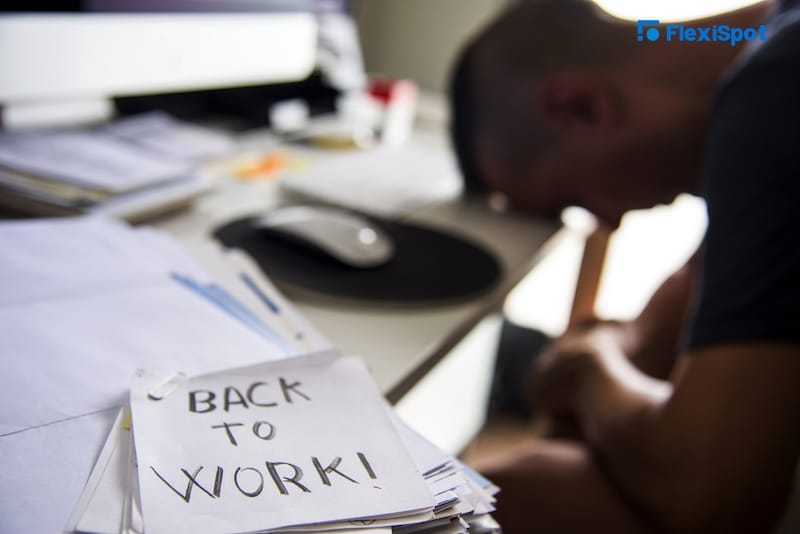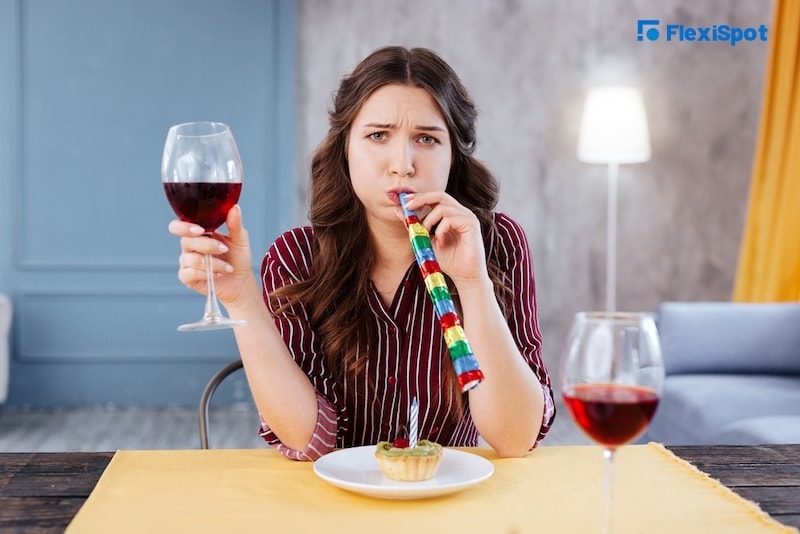The holiday season is over, and you’re probably feeling more anxious, unmotivated, irritable, worried, and depressed. After the excitement of the holidays, you are probably wondering why you’re feeling this way.
Well, not to worry, it’s not uncommon to have such feelings. You’re probably experiencing post-holiday blues. Holidays trigger all sorts of emotions for different people, and it doesn’t help that the holiday period lasts for a couple of weeks.
Sometimes it can be difficult to regulate these feelings, and you may feel helpless. Here are things you need to know about post-holiday blues and how to get past this downtime.
What are Post-Holiday Blues?
Post-holiday blues refers to the stress, anxiety, or depression that some people experience after the intense emotions of the holiday season. The mood slump after holidays is also referred to as a post-vacation syndrome. The good news is that, unlike clinical depression, post-holiday blues last for a short time.
Signs of post-holiday blues include feelings of loss, lack of motivation, increased levels of stress, feeling empty and lonely, increased worries over issues like finances, insomnia, and depression. Experiencing these symptoms could indicate that you’re going through post-holiday blues.
What Causes Post-Holiday Blues?
Wondering why you’re feeling a bit low after the holidays? Well, first of all, you should know that it’s pretty common to feel this way and perfectly normal. Here’s a list of reasons why you could be experiencing post-holiday blues.
Readjusting Your Routine
Holidays are probably the only time of the year that people interrupt their day-to-day schedules. Readjusting from normal to holiday then back to normal routines can cause stress. It can take a while to fully readjust to the post-holiday routine.
We're Emotionally Drained.
The holiday season comes with intense feelings. For some people, it’s intense feelings of joy, while others experience sadness due to loneliness. Mingling with many family members and friends can also be draining because of the strain in some of these relationships. All these heightened emotions are bound to leave one feeling drained, and you may take some time to get back to your normal emotional range post-holidays.
Financial Strain
The holiday season calls for a lot of spending. Whether you decide to gift your loved ones, travel as a family, or have gatherings, holidays can cause financial strain leading to increased levels of stress after the celebrations.
Diet and Alcohol Intake Change
For many people, the holidays are a time when they let go of their normal eating and drinking habits and indulge in all sorts of rich, fatty, and sugary foods. Then, once the holidays are over, they have to go back to their normal routine, which can be a huge letdown.
Likewise, if you're used to drinking heavily during the holidays, suddenly cutting back or quitting cold turkey can also lead to feelings of withdrawal and depression.
In addition to the sudden change in routine, many people feel guilty after the holidays for eating and drinking too much. This guilt can lead to feelings of sadness or depression.
Overcommitment
Many people overstretch themselves during the holiday season. As the season is dubbed a period of cheer and merrymaking, it can be difficult to turn down invites. Overcommitting can lead to post-holiday blues as you’re left feeling drained.
Sleep Deprivation
Disruption of sleep patterns caused by holiday celebrations that extend into the wee hours of the morning. Lack of enough sleep can lead to bad moods and low energy levels. Unfortunately, with many people going back to normal routines, there’s hardly time to catch up on sleep and rest.
Social isolation
Holidays for some don’t involve celebrating with people. Loneliness experienced when spending time alone during what is supposed to be a festive season can trigger feelings of depression.
Guilt After Overindulging During the Holidays
It’s common to make poor decisions during the holidays. It could be you’re trying to stick to a diet or reduce alcohol intake, but with the holiday frenzy, it’s very easy to overindulge. Once the holidays are over, many people feel ridden with guilt over these poor choices leading to post-holiday blues.
Resentment Over Perceived Obligations to Family and Friends During the Holidays.
Relationships with family and friends can be complex. Many people are unable to set healthy boundaries, so they end up doing things over the holidays out of ‘perceived’ obligation. Such situations trigger negative emotions that could persist for a while after the holidays.
Dealing with Extra Stress From Family Conflict or Drama During the Holidays
Family feuds are quite common, and holidays worsen the situation with so many family members together. You could feel disappointed by some family members. Sometimes interactions with family and friends could also leave you feeling judged, triggering hurt feelings. It can take a while to get over the feelings elicited by family drama.
Low Energy Levels and Fatigue From all the Excitement and Activity During the Holidays
After the intensity of holiday experiences, you’re bound to have a drop in energy levels. After all the excitement dies down, it’s normal to have low moods. Holidays also include a myriad of activities that you’re typically not used to doing. While your body may be acting on the adrenaline rush linked to the season, the fatigue from all the activities finally catches up, and you could experience some downtime.
Homesickness and Nostalgia
Unfortunately, some people are unable to go home for the holidays. Homesickness can result in depression even after the holiday season. In some cases, holidays trigger nostalgia for better days due to family loss or estranged relationships.
How to Get Rid of Post-Holiday Blues
The post-holiday blues can be tough to shake, but with a little effort, you can get yourself back into a good mood. Here are a few tips:
Get Organized.
The readjustment from holiday mode back to normal in all aspects of life can make you feel overwhelmed. The organization is important in getting rid of the post-holiday blues. Preferably, before the holidays, have a plan for everything, including your finances.
If you don’t have a pre-holiday plan, you can still get your life back on track after the holidays. Write down what needs to be done and get things back in order.
Be Patient –Give Yourself Time to Adjust
The holidays are a really busy time, and it's normal to feel a little let down once they're over. Give yourself some time to relax and readjust to your regular routine.
Set Goals for Yourself and Stick to Them
Setting goals and achieving them makes you happier. Once you want something and you get it, your brain acknowledges this by producing the “feel good” hormone, dopamine. You also feel good about yourself, which boosts moods.
Declutter Your Space.
Clutter is known to increase stress levels. Decluttering has been known to improve moods. It gives you a sense of control and makes you feel less overwhelmed.
Spend Time Outside in Nature.
Being in nature has positive effects on emotional and physical wellbeing. After experiencing intense emotions over the holidays, being in nature can help you reduce the negative feelings of stress and anger. Taking walks, enjoying scenes of nature, or riding a bike can get you out of the post-holiday blues. What’s more, it’s not only good for your mental wellbeing but also positively affects your physical health. You could reduce blood pressure and limit the production of stress hormones by being in nature.
Indulge in Your Favorite Activities or Hobbies.
What better way to get out of a funk than engaging in your favorite activities! You can beat post-holiday blues by setting aside some time to do something you actually love. It could be painting, cooking, or writing. Indulging in things that excite you reduces your stress levels and helps you transition to the post-holiday state.
Get Some Exercise
Exercise releases endorphins, which have mood-boosting effects. A moderate amount of exercise is the key to keeping your spirits up.
Plus, exercise is a great way to get rid of stress. When you're stressed out, your body releases cortisol, which is a hormone that can actually make you feel sad or down. But when you exercise, cortisol is lowered, which can help improve your mood.
Spend Time With Friends and Family
Social support is key in helping us cope with stress, so spending time with friends and family is definitely one way to help brighten up your mood.
Cut on Alcohol and Sugar-Based Diets
Get back into a healthy routine. You’re essentially giving your body a break by cutting out these things. Alcohol and sugar can both be very taxing on the body, so taking a break from them can help to rejuvenate you.
Engage in Relaxing Activities
Relaxing activities such as yoga or meditation can help clear your mind and improve your mood. Yoga and meditation improve mindfulness which enables you to concentrate and focus.
Reflect on What Went Well
People often get into an emotional slump because they focus on the negative things. Instead, recall all of the good things that happened over the holiday season – no matter how small they may seem. Focusing on the glass half full can help you see that it wasn’t that bad.
Listen to Upbeat Music or Read Positive Affirmations Aloud Daily.
Music therapy is known to improve moods. This is not the time to listen to sad songs that could dampen your spirit further. Play upbeat music, dance a little bit, listen to affirmations, or read aloud daily.
Reconnect With Yourself
Holidays can be a busy time, but make sure to schedule some time each day for yourself – even if it's just 10-15 minutes. Use this time to do something calming, like reading, journaling, or meditating.
Avoid Comparing Yourself to Others
Even with all the positive attributes of social media, it can be detrimental to mental well-being. With social media influencers and celebrities showing their good life, you might find yourself comparing yours to theirs. People often forget that you only see a snippet of the whole story, which might not be as glamorous as what photos and 1-minute videos depict. Avoid social media, especially during post-holiday blues or a depressive state. Focus on yourself and forget about others until you are out of this state.
Make a Significant Purchase
Your post-holiday blues are probably because you got underwhelmed with the gifts they got you over the holidays (it happens). Or, the gifts were perfectly fine, and you liked them. The question is, in all that giving, did you get yourself something? If not, then you need to get into the habit of self-appreciation. Buy something that plays into your self-reward system. The beauty of this particular practice is that you can’t not please yourself with your purchase.
You could upgrade your tech, pay for a vacation or take our recommendation- buy yourself some ergonomic furniture. Grab yourself an ergonomic seat from our range, and pair it with any of our height adjustable standing desks. This pair will help you stay productive at work, reduce the effects of sedentary living, and allow for comfortable working through the next couple of years as Flexispot products are highly durable.
Get Enough Sleep
Sleep deprivation during the holidays can affect your moods. Try and carve out time to actually sleep. Rest is essential in regulating moods.
Avoid overcommitting
Feeling overstretched during the holidays is common and contributes significantly to post-holiday blues. Learn to say no to people and plans during the holiday season. You don’t have to attend every gathering you’re invited to, and you could also refuse to engage in many of the things that seem like family obligations. Prioritize your well-being even during the holiday season to avoid post-vacation syndrome afterward.
Seek Professional Help if Things Feel Really Tough
Typically, post-holiday blues last for a short while, but the state of depression can overextend in some people. If you have been feeling depressed for a long while, it may be time to see a professional to help you through it. Sometimes holidays trigger traumas that you haven’t dealt with, and it may require speaking to a professional to unpack everything.

Conclusion
Post-holiday blues are more common than you would expect. So, if you’re feeling bad after the holidays, don’t worry because you’re not alone. Some people start experiencing negative emotions during the holiday, and the feelings spill over to the period after the holidays. Whether you’re feeling stressed, anxious, depressed, or lonely, the tips in this article can help you overcome it. However, if you can't seem to get over this state of depression, seek professional help.







